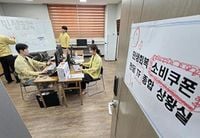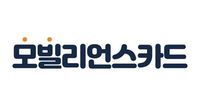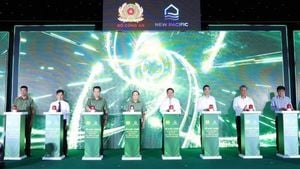South Korea is gearing up for a significant boost to its domestic economy with the government's upcoming launch of the "Livelihood Recovery Consumption Coupon" program, set to begin on July 21, 2025. This initiative aims to stimulate consumption and support small businesses, particularly traditional markets and convenience stores, by distributing consumer coupons to the public in two phases.
The government plans to inject a total of 13.9 trillion won into the economy through this program, with individual coupon amounts ranging from 150,000 won to as much as 550,000 won. The first phase of coupon issuance will run from July 21 to September 12, followed by a second phase targeting the bottom 90% income bracket from September 22 to October 31. Recipients will have until November 30, 2025, to use their coupons, after which any unused balance will be automatically reclaimed by the authorities.
One of the program's key beneficiaries is the traditional market sector. Lotte Shopping's e-commerce platform, Lotte ON, is spearheading efforts to extend the reach of the coupons by hosting the "Lively Livelihood Recovery" event through its "Onnuri Store" until July 23. This event features up to 30% discounts on signature foods from Seoul's traditional markets, including Andong Bukmun Market, Seodaemun's Independence Gate Yeongcheon Market, and Suyu Jaerae Market. Customers paying with digital Onnuri gift certificates receive an additional 10% immediate discount and a 10% cashback, amplifying the savings and encouraging online purchases that support local economies.
According to Lotte ON's B2B Business Manager, Cha Jung-hyup, "Collaborating with regional traditional markets to expand online sales channels and boost actual revenues for small merchants is deeply meaningful. We will continue to develop diverse content that fosters mutual growth with local communities and become a steadfast partner for small business owners." This reflects a broader strategy to revitalize regional economies through digital platforms.
Convenience stores, recognized as major coupon usage points, are also preparing a variety of discount events and promotional campaigns to attract consumers. GS25 plans to introduce value-oriented products such as premium Hanwoo beef, galbi sets, and eel at prices competitive with large supermarkets. CU is set to launch 1+1 promotions and discounts focusing on staple foods like bread, ramen, and coffee, as well as seasonal items such as beverages and ice cream. Impressively, 99% of CU’s more than 18,600 stores nationwide are franchise outlets eligible for coupon use, ensuring widespread accessibility.
Seven-Eleven is similarly gearing up with discounts on daily necessities and additional benefits, anticipating that the coupons will primarily be used for everyday purchases. The convenience store industry recalls a 2.4% sales increase following the 2020 disaster relief fund distribution and expects similar growth this time. A Seven-Eleven representative noted, "Given our 24-hour operations, neighborhood accessibility, and diverse product categories, convenience stores are poised to be a major usage venue. Especially amid the ongoing economic downturn, this support is expected to stabilize operations for self-employed store owners and small merchants."
KG Mobilians, a comprehensive payment service provider, announced that its prepaid "Mobilians Card" will be a convenient channel for receiving and using the coupons. Starting July 21, users can apply via the Mobilians Card app, which redirects to BC Card’s application page. Once approved, funds are automatically credited to the card, which can be used at franchise stores with annual sales under 3 billion won. The card offers real-time balance checks, no issuance fees, and up to 8% point payback on offline payments, making it an attractive option for many.
The Ministry of Interior and Safety has clarified eligibility details through a "10 Questions 10 Answers" briefing on July 15. Newborns born after June 18, 2025, can receive coupons if their birth is registered and they apply for an objection by September 12. Conversely, individuals who passed away after the eligibility date are excluded, with any already disbursed amounts subject to recovery. Proxy applications are allowed for those unable to apply themselves, including legal guardians, household members, spouses, and direct relatives, with appropriate documentation.
Military personnel receive special consideration. Those on active duty can apply via the general process or through a separate method tailored to their circumstances. Coupons issued through the "Narasarang Card" can be used at military commissaries nationwide. Offline applicants can submit requests by mail to their local administrative offices, which then send physical coupons to military units. Proxy applications for soldiers are facilitated by allowing photographs of power of attorney documents instead of originals, easing the process.
For those residing in nursing homes or care facilities, proxy applications are expanded to include siblings, and application procedures are simplified recognizing the difficulty of completing power of attorney forms. Local governments will also offer "visiting application" services for elderly or disabled residents unable to apply in person.
Regarding coupon usage locations, large supermarkets such as E-Mart, Lotte Mart, Homeplus, and department stores are excluded to protect small businesses. However, small business tenants operating independently within these venues—like beauty salons, pharmacies, and flower shops—are eligible. Corporate-owned supermarkets, whether directly managed or franchised, are also excluded due to their scale and competition with small merchants.
Franchise convenience stores are eligible only if they are independently operated with annual sales under 3 billion won; directly managed stores are excluded. This distinction stems from tax and regional economic considerations. To prevent misuse, the government is working with convenience store associations to discourage sales of high-priced items like large electronics or gold bars through the coupons.
Use of coupons via kiosks or table ordering systems may be restricted, as these often operate through separate payment gateways. Delivery apps generally do not accept the coupons; however, face-to-face payment with the franchise’s own terminal upon delivery is permitted. Transportation services like individual taxis are eligible if their license registration falls within the coupon usage area, and corporate taxis qualify if their headquarters are within the area and meet sales criteria.
Local governments like Daejeon City have mobilized to ensure smooth implementation. Daejeon announced on July 16 that applications will open July 21, with coupons valid until November 30. Payment options include credit cards, debit cards, local love cards, and prepaid cards. The city has set specific coupon amounts based on income brackets: 180,000 won for the top 10%, 280,000 won for general citizens, 430,000 won for vulnerable groups, and up to 530,000 won for basic livelihood recipients. A dedicated task force and a supplementary budget of 42.8 billion won have been established to support the program. Kwon Kyung-min, Director of Daejeon’s Economic Bureau, expressed hope that the coupons would revive the local economy and pledged to minimize inconvenience from application to usage.
As the July 21 launch date approaches, businesses and consumers alike are preparing for the impact of this substantial government initiative. By targeting traditional markets, convenience stores, and small businesses, the Livelihood Recovery Consumption Coupon program aims to breathe new life into local economies and provide relief amid ongoing economic challenges.





